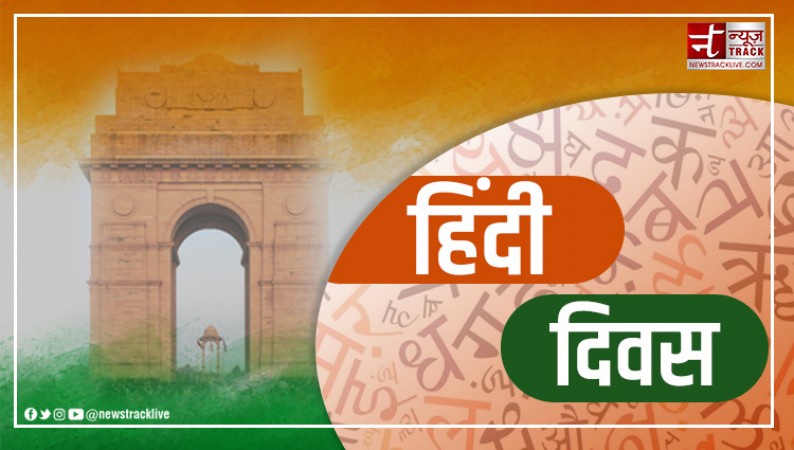
Hindi Diwas, celebrated on 14th September every year, holds immense significance in India's cultural and linguistic landscape. It commemorates the momentous decision made during the drafting of the Indian Constitution in 1949, where Hindi was granted the status of an official language. This day serves as a reminder of the rich linguistic diversity of India, the importance of Hindi as a unifying force, and the need to preserve and promote our linguistic heritage.
Historical Background
To truly appreciate the significance of Hindi Diwas, it is essential to delve into the historical context. India, a nation known for its diversity, is home to a multitude of languages spoken across its length and breadth. This linguistic diversity posed a unique challenge during the formative years of independent India. The Constituent Assembly of India, tasked with drafting the nation's Constitution, had to make a crucial decision regarding the official languages of the Republic.
The Constituent Assembly Debate
The Constituent Assembly, under the leadership of Dr. B.R. Ambedkar, engaged in a spirited debate over the choice of official languages. On one hand, there were proponents of English, arguing that it should continue as the sole official language to facilitate administrative efficiency and international communication. On the other hand, champions of Hindi advocated for its adoption as the official language, citing its widespread use and cultural significance.
The Compromise
After extensive deliberations and negotiations, a compromise was reached on 14th September 1949. Hindi was granted the status of the official language of the Indian Union, but with a transitional period during which English would continue to be used for official purposes. This transitional period aimed to provide time for the gradual transition of government functions from English to Hindi. It was also agreed that the use of English would be retained for purposes of communication with non-Hindi speaking states.
Significance of Hindi Diwas
Hindi Diwas stands as a testament to the democratic spirit of India. It represents the willingness of the Constituent Assembly to accommodate diverse linguistic communities while also recognizing the need for a common language to foster national unity. The celebration of Hindi Diwas is a way to honor this compromise, promote Hindi as a means of communication, and preserve the linguistic fabric of the nation.
Promoting Linguistic Unity
One of the primary objectives of Hindi Diwas is to promote linguistic unity in a country known for its linguistic diversity. Hindi, being one of the most widely spoken languages in India, serves as a bridge that connects people from different linguistic backgrounds. It helps in breaking down linguistic barriers, enabling better understanding and communication among Indians from various regions.
Preserving Cultural Heritage
Hindi is not just a language; it is a repository of India's rich cultural heritage. It is the language of our ancient scriptures, poetry, literature, and folk traditions. Celebrating Hindi Diwas is a way of acknowledging and preserving this cultural heritage. It reminds us of the profound impact Hindi has had on shaping our history, traditions, and identity.
Language of Governance
Hindi Diwas also underscores the importance of Hindi as the language of governance. Since its adoption as an official language, Hindi has played a crucial role in the functioning of the Indian government. It is used in legislative proceedings, official documents, and communication between various government bodies. This ensures that citizens across the country can access and understand government information, fostering transparency and accountability.
Promoting Hindi Education
Hindi Diwas serves as a platform to emphasize the need for Hindi education. It encourages schools and educational institutions to impart quality education in Hindi, thus empowering individuals with proficiency in their national language. This is particularly crucial in rural areas where Hindi may be the primary medium of instruction.
Challenges and Controversies
While Hindi Diwas celebrates the significance of Hindi, it has not been without its fair share of challenges and controversies. India's linguistic diversity remains a sensitive issue, and debates surrounding the imposition of Hindi on non-Hindi-speaking states have often led to protests and political tensions. It is essential to strike a balance between promoting Hindi and respecting the linguistic rights of all Indians.
Hindi Diwas is a celebration of India's linguistic heritage and the unity in diversity that defines the nation. It reminds us of the historic compromise reached during the Constituent Assembly debates and the importance of Hindi as an official language. However, it is crucial to remember that linguistic diversity is one of India's strengths, and efforts must be made to preserve and promote all languages spoken in the country while upholding the status and significance of Hindi. As we commemorate Hindi Diwas, let us embrace our linguistic diversity and work towards a harmonious and inclusive India where every language is celebrated and respected.